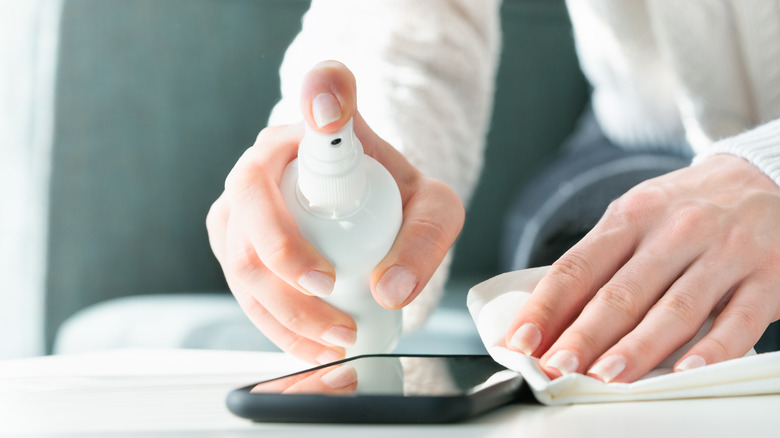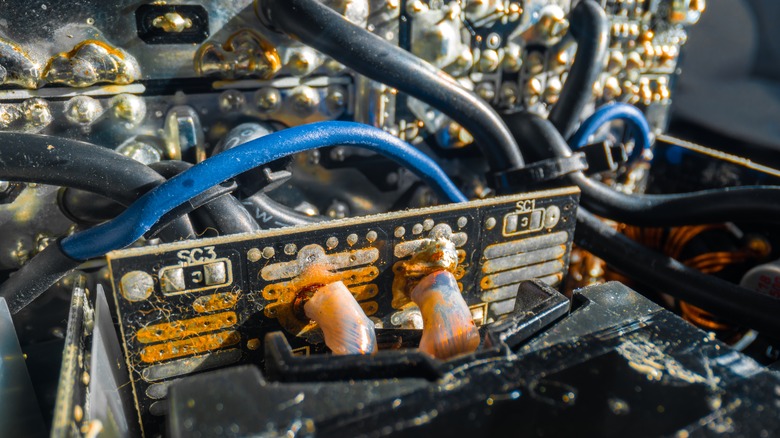The Common Cleaning Ingredient You Shouldn't Use On Electronic Devices
Vinegar is an incredibly versatile chemical that most people have in their homes. It has tons of uses, but its prowess at cleaning really stands out. There are, however, certain things you should never clean with vinegar, and two of those are electronic devices and their screens. It's easy to get into cleaning mode and not stop to think about the impact our choice of cleaners might have on the various sorts of things we might be cleaning. Common white vinegar is a powerful acid diluted in water, but it maintains its acidity, which can have some unfortunate unintended consequences on electronics.
Our various screens — computer screens, televisions, and touchscreens on phones, tablets, and toys — present the biggest problem when it comes to vinegar. The diluted acetic acid can strip away a screen's anti-glare treatments, remove the oleophobic coating that resists fingerprints, and even make touchscreens less responsive. Some manufacturers say that diluting white vinegar to half its normal strength is okay for spot-cleaning monitors, but there are safer ways to clean your computer screen, keyboard, and mouse. If you do try it, it's important to spray the mixture on your cleaning cloth (microfiber is best) first, then clean, rather than spraying the monitor directly. The reason for this relates to the other problems that vinegar can present for your electronics.
Vinegar isn't great for circuit boards, either
There are a few ways vinegar finds its way into electronics, and some say the effects can be devastating. YouTuber Fix it Fox attributes the destruction of his electronic piano's printed circuit boards to using vinegar when cleaning after some corroded batteries. The use of vinegar in cleaning up battery corrosion is actually commonly recommended, and it is effective, but you must take care to not allow vinegar anywhere but the battery compartment and you must rinse away any residue thoroughly.
Vinegar can deteriorate copper, and the traces (the electrical pathways) in circuit boards are commonly made of copper. In fact, vinegar is a component of a fairly common home method of PCB etching, which is a process by which copper is removed from circuit boards. Vinegar also has a reputation for degrading soldered joints and solder masking on PCBs. Perhaps predictably, others recommend actually using vinegar to clean circuit boards, so long as you thoroughly rinse and dry the boards after cleaning. This is a fiddly process that introduces a lot of opportunities to damage your circuit board, so this kind of thing is probably best left to electronics repair professionals. If they decide to take the risk of using vinegar, at least they'll have their insurance policies backing them up.

